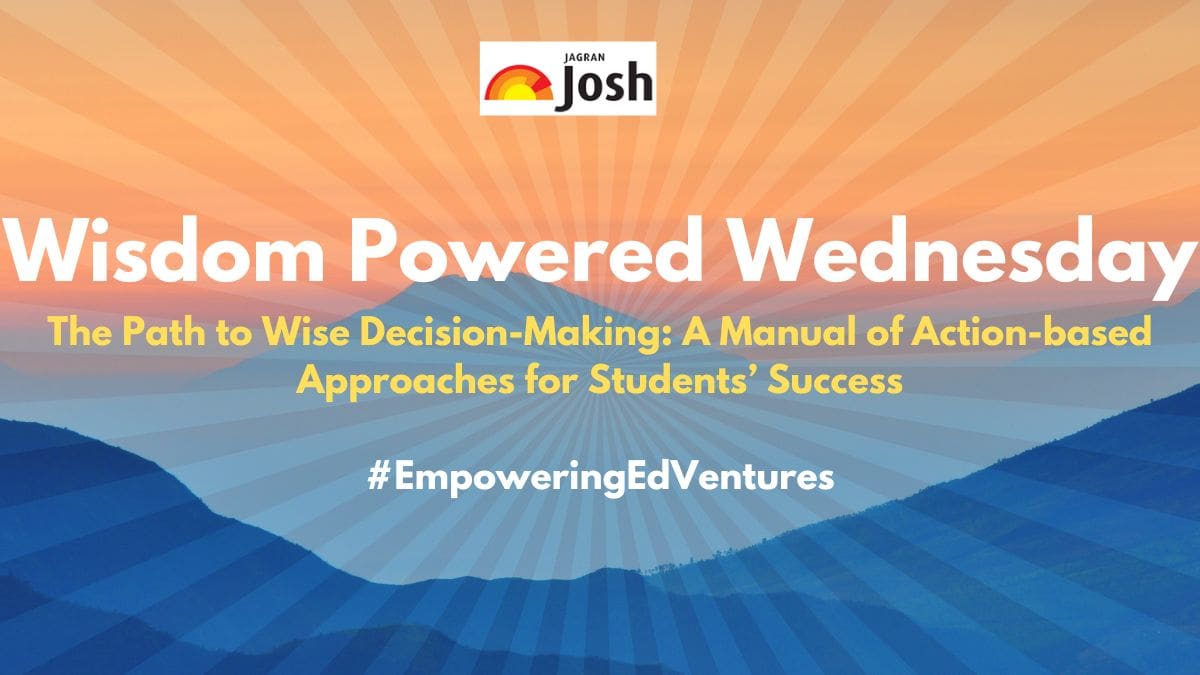Apply Online for 196 Junior Resident Vacancy, Check Eligibility
[ad_1] AIIMS Recruitment 2023 Notification: All India Institute of Medical Sciences (AIIMS), New Delhi has…
[ad_1]

Wisdom includes the capacity to apply knowledge wisely and make informed judgements based on experience, critical thought, and compassion. Wisdom is more than just knowledge or information. Wisdom in education emphasises the development of pupils into well-rounded individuals with emotional intelligence, ethical awareness, and a sense of purpose rather than just academic performance.
As students, you are constantly faced with choices that can shape your academic journey and future. Making wise decisions is like having a secret superpower that helps you navigate through challenges and seize opportunities for growth. In this empowering article, we will explore the art of wise decision-making, equipping you with valuable tools to embark on a path to success.
Wise decision-making begins with self-awareness. Take time to reflect on your long-term goals and personal values. What do you aspire to achieve academically and in life? Understanding your objectives will serve as a compass, guiding you towards choices that align with your dreams.
Being well-informed is crucial in making wise decisions. Research the options available to you, whether it’s choosing subjects, extracurricular activities, or potential career paths. Seek advice from teachers, parents, or mentors who can offer valuable insights and help you see the bigger picture.
Create a list of the pros and cons of each option you are considering. This exercise will help you visualise the potential outcomes and make a more balanced decision. Remember, even wise choices may involve some challenges, but by evaluating the advantages and disadvantages, you can make informed decisions.
Wise decision-making goes beyond immediate gratification. Consider the long-term consequences of your choices. Will this decision align with your goals? Will it contribute positively to your growth and development? Thinking ahead will lead to more meaningful and fulfilling experiences.
Reflect on past decisions and their outcomes. Acknowledge what worked well and what didn’t. Mistakes are part of life, and learning from them is a sign of wisdom. Use your experiences as stepping stones for future decisions.
Intuition can be a powerful guiding force. If you feel strongly about a particular choice, trust your instincts. Sometimes, your gut feeling knows what’s best for you, even when it may not seem logical.
Discuss your thoughts with trusted friends or classmates. Hearing different perspectives can shed light on aspects you might have overlooked. However, remember that the final decision should be based on what feels right for you.
Sometimes, we may feel pressured to make quick decisions. Take your time. Wise choices are rarely rushed. Give yourself the space to analyse and deliberate before committing to a path.
Life is full of surprises, and circumstances may change. Be open to adapting your decisions as needed. Wise decision-makers embrace flexibility and are willing to adjust their plans when necessary.
Take ownership of your decisions. Whether they lead to success or challenges, being responsible for the choices you make will empower you to learn and grow from every experience.
[ad_2]
Source link